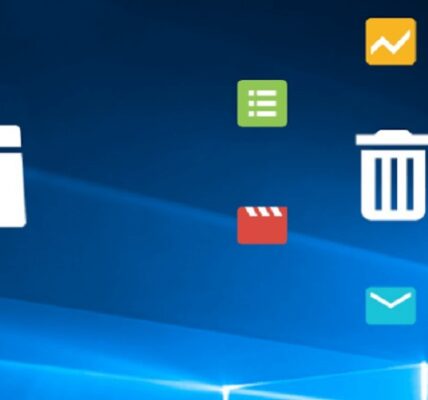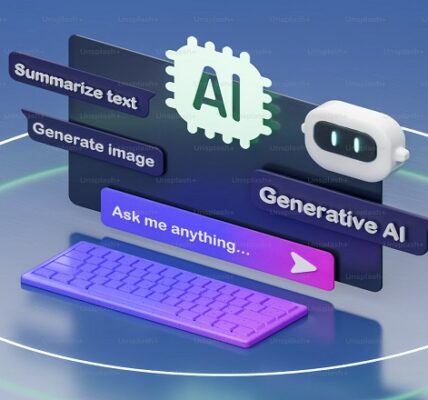Imagine waking up, and before you’ve even gotten out of your bed, a smart home assistant is making coffee, because your smart AI assistant knew you’d be up earlier today. Your phone greets you with a summary of information that’s specifically relevant to you, based on your interests, needs, habits, or past behavior, the weather, your schedule, and even the top news stories, into a short, friendly voice message. None of this happened by magic. It happened because of Artificial Intelligence, a force quietly working behind the scenes to make your life smoother, faster, and more connected.
It is no longer just a meaningless term in tech conferences or a plot device in sci-fi movies. It’s part of our daily life, from the apps we use to the medical diagnoses that save lives. But what exactly is it? How did we get here? And where is it taking us? Let’s dive into the journey of AI, from its humble beginnings to the groundbreaking role it plays in our present and the possibilities it promises for our future.
What Exactly is AI?
Artificial Intelligence, often abbreviated as AI, is the ability of a computer or machine to perform tasks that would normally require human intelligence. This means it can learn from experience, adapt to new information, and solve problems without being specifically programmed for every single situation. Instead of simply following rigid instructions, It uses algorithms and data to make decisions, like humans use experience and reasoning to solve problems.
For example, when you type a message on your phone and it predicts the next word you’re about to say, that’s AI. When Netflix recommends a movie you end up loving, that’s AI, too. These systems don’t just guess randomly; they learn from patterns in your past behavior and from millions of similar patterns in other users.
What makes AI different from traditional computing is that it’s not fixed; it’s high-powered. Traditional software runs on “if this, then that” logic. AI, on the other hand, can look at a messy pile of data, find relationships that aren’t obvious, and then make predictions or decisions based on that understanding.
The Evolution of AI: From Dream to Reality:
The idea of AI isn’t new. It stretches back to the mid-20th century when early computer scientists dreamed of creating machines that could “think” like humans.
- In the 1950s and 60s, pioneers like Alan Turing and John McCarthy laid the foundation for its research. Back then, the progress was small; teaching a computer to play a simple game or solve basic math problems was innovative.
- The 1970s and 80s brought what researchers now call “AI winters,” periods when excitement buzzed because the technology couldn’t live up to expectations. Computers weren’t fast enough, data wasn’t abundant, and funding settled down. But the dream never died.
- In the late 1990s and 2000s, things began to change. Faster processors, the explosion of the internet, and the landslide of digital data gave AI the fuel it needed to grow.
- The 2010s saw the deep learning revolution, where neural networks were inspired by the human brain, making a huge jump in recognizing images, understanding speech, and translating languages.
- Now in the 2020s, AI has truly left the lab and entered everyday life. Chatbots can write essays, cars can drive themselves on busy highways, and AI-powered tools can create entire pieces of music or artwork in seconds. What was once science fiction is now an everyday utility.
How AI is Already Part of Your Life?
You might think AI is something you only encounter if you’re a tech worker, but the truth is, you’re probably using it dozens of times a day without realizing it.
- When you unlock your phone with your face, AI is there, scanning and matching your features in milliseconds.
- When your email app filters out spam, it’s using AI to decide what’s important and what’s junk.
- In your home, smart devices like thermostats learn your habits and adjust the temperature automatically.
- Streaming platforms suggest shows that align with your taste, often introducing you to favorites you never would have found otherwise.
- Even online shopping experiences are shaped by AI, which recommends products based on what you’ve browsed, bought, and even paused to look at.
- At work, AI might be helping schedule meetings, analyze massive amounts of data, or even draft reports.
- In healthcare, it assists doctors by detecting diseases from scans faster and, in some cases, more accurately than human experts.
AI doesn’t always wear an expensive label; it blends into your day-to-day life, quietly working to make things faster, smarter, and more personalized.
The Defining Features of AI:
AI stands out from other technologies because of its unique capabilities. One of the most remarkable features is its ability to learn from data. The more information it processes, the better it becomes at recognizing patterns and making predictions. Unlike a fixed program, AI can adapt its behavior based on new experiences, which makes it incredibly adaptable.
Another defining trait is automation. AI can handle repetitive tasks without human interruption, freeing people to focus on more complex and creative work. It can also make decisions in real time, often faster than humans, because it can analyze vast amounts of information in seconds.
Expandability is another strength. Whether it’s sorting through hundreds of photos or analyzing millions of financial transactions, AI can perform at a level and speed that humans simply can’t match. Combined with its adaptability and precision, these features make AI a game-changer in nearly every field.
The Services AI Provides Today:
Today, AI is at the heart of countless services that people rely on every day. Customer service is one of the most obvious examples, such as AI chatbots that can answer questions, troubleshoot problems, and guide customers through processes 24/7. Content creation is another strong area, with AI tools generating everything from marketing copy to stunning digital art.
- Business: In business, AI powers advanced data analysis, helping companies spot trends and make decisions that give them an edge over competitors. Language translation services have improved dramatically thanks to AI, allowing people to communicate instantly across verbal barriers. In finance, AI monitors transactions in real time, spotting signs of fraud that a human analyst might miss.
- Healthcare: Healthcare is benefiting too, with AI-assisted diagnostics that help doctors catch illnesses early and recommend treatments based on a patient’s unique data.
- Transportation: In transportation, AI is optimizing delivery routes, predicting traffic patterns, and even piloting self-driving cars. These aren’t just conveniences; in many cases, AI is saving time, saving money, and even saving lives.
Advantages:
The advantages are vast and far-reaching. One of the biggest benefits is efficiency. By automating repetitive or time-consuming tasks, it allows people and organizations to focus their time and energy on more strategic, creative, or human-centered work. This efficiency often translates into cost savings, as fewer resources are needed to achieve the same or even better results.
AI also improves accuracy. In fields like healthcare or finance, even small errors can have serious consequences. It has ability to analyze vast datasets and identify patterns helps reduce mistakes and improve decision-making.
Personalization is another huge benefit. AI can tailor services to each individual, whether that’s recommending the perfect product, curating a playlist you’ll love, or adjusting your smart home’s lighting and temperature to your exact preferences.
Challenges:
Despite its many benefits, AI is not without its challenges.
- One of the most pressing concerns is job displacement. As machines and algorithms become capable of doing more, some roles may disappear, forcing workers to retrain or move into new fields.
- There’s also the issue of bias. AI systems learn from data, and if that data reflects societal biases, the AI can unintentionally reinforce or amplify them. This can lead to unfair outcomes in areas like hiring, lending, or law enforcement.
- Privacy is another concern. AI often relies on massive amounts of personal data to function effectively, raising questions about how that data is stored, shared, and protected. And then there are ethical worries such as the potential misuse of AI for deepfakes, surveillance, or manipulation in politics and media.
How is it Helping us Right Now?
Even with its challenges, AI is making a positive difference in countless ways today. In disaster response, AI-powered systems can analyze weather data to predict floods, wildfires, or hurricanes earlier, giving people more time to prepare or evacuate. In medicine, AI is accelerating drug discovery, turning what used to be years of research into a matter of months.
For people with disabilities, AI is opening doors through real-time captions, speech-to-text tools, and AI-powered devices that assist with daily activities. In education, adaptive learning platforms are helping students learn at their own pace, making lessons more effective and enjoyable. These examples show that, when used responsibly, AI can be a powerful ally in solving some of the world’s biggest challenges.
The Future of AI:
Looking ahead, AI’s influence will only grow. In healthcare, we can expect AI to play an even bigger role in diagnosing and treating complex diseases, potentially catching illnesses long before symptoms appear. In transportation, self-driving vehicles could become the norm, making travel safer and more efficient.
AI will likely make services even more personalized, from custom-tailored health plans to individualized learning paths in schools. Creativity will also see a boost, as AI becomes more capable of producing music, films, and visual art, not to replace human creativity, but to collaborate with it.
Some experts believe that as AI continues to advance, it could outperform humans in most routine tasks. While this may raise concerns about the job market, it could also free people to focus on innovation, empathy-driven work, and solving problems that machines can’t easily handle.
Will AI Take Over?
The phrase “AI taking over” often sparks fear, but the reality is likely to be more about collaboration than domination. AI will take over specific tasks, especially those that are repetitive or data-heavy, but humans will still play a crucial role in oversight, strategy, and areas that require emotional intelligence.
For instance, AI might handle the initial review of medical scans, but a doctor will interpret the results and make the final treatment decision. In business, AI might analyze trends and prepare reports, but human leaders will decide how to act on that information. The future will be shaped by how we choose to integrate AI into our lives, balancing efficiency with ethics.
Conclusion
Artificial Intelligence is no longer a distant dream; it’s a present-day reality shaping our world in ways big and small. From streamlining daily routines to driving breakthroughs in science and medicine, AI has the potential to make life better for billions of people. But it also demands that we address its challenges, from job shifts to ethical concerns with care and responsibility.
The story of AI is still being written, and we all have a role in deciding how it unfolds. Whether it becomes a tool that empowers humanity or one that deepens inequalities will depend on the choices we make today. One thing is certain: AI isn’t just part of our future, it’s here now, and it’s changing everything.





1 COMMENTS
Comments are closed.